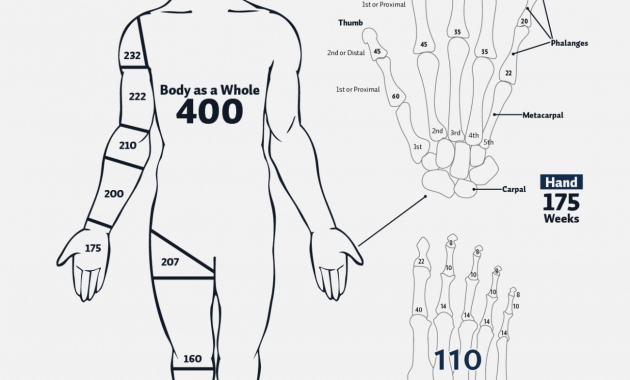Injured workers’ most common question: “What is my PPD rating?”
Injured workers often ask Georgia workers’ compensation attorneys what their case is worth. The most common question received is “What is my PPD rating?”
You may usually get confused with technical terms. This article will walk you through all the basic technical details regarding PPD Rating and benefits. If you need legal assistance please feel free to call us and hire a good Georgia workers’ compensation attorney.

PPD vs TTD
PPD or permanent partial disability payment occurs when no temporary total or temporary partial disability payments exist. In other words, you cannot receive TTD or TPD benefits at the same time you are receiving PPD benefits.
Once the injured worker’s entitlement to TTD or TPD benefits end, injured workers qualify for PPD benefits in most cases.
The insurance company has thirty days after the TTD or TPD ends to request a PPD rating pursuant. This is a frequently violated Board Rule.
If you stop receiving TTD or TPD benefits and the insurance company has not requested a doctor’s PPD rating, immediately contact a workers’ compensation attorney.
What is a PPD Rating?
A PPD rating is the disability schedule that determines benefits due for loss of permanent use of a specific body part. Also, this is known as Permanent Partial Disability or “PPD”. So, the PPD rating follows AMA guides to “permanent impairment.”
Currently, the AMA provides the outline for your authorized treating physician. Unfortunately, many physicians guess rather than use the AMA guide.
PPD rating – Whole Body Impairment Rating Chart

Video Explanation of PPD Rating by Beth Gearhart
How Much Do I Receive according to my PPD Rating?
Today, insurance adjusters use simple disability rating calculations. For example, insurance adjusters multiply your disability/ impairment rating (a percentage) by a prescribed number of weeks (depending on the body part).
Also, this provides the number of weeks you are eligible for PPD benefits. This amount is multiplied by your compensation rate to determine the final owed amount. The insurance company can opt to pay these benefits weekly or in one lump sum.
- Example #1: A 10% whole person impairment rating is .10 multiplied by 300 weeks (for the body as a whole) resulting in 30 weeks of benefits. If your compensation rate is $500 per week, then you are entitled to $15,000, which is $500 multiplied by 30.
- Example #2: A 15% impairment rating to the upper extremity (arm) is .15 multiplied by 225 (for upper extremity) resulting in 33.75 weeks of benefits. If your compensation rate is $500 per week, then you are entitled to $16,875, which is $500 multiplied by 33.75.
Temporary Total Disability Calculator
Workers Compensation Weekly BenefitEnter Average Weekly Wage here to calculate your temporary disability income.
This is the Georgia statute that governs workers’ compensation PPD ratings in Georgia.
Disability Rating Value
Typically, the insurance company must pay the PPD rating amount unless it is disputed. However, a second medical opinion called an Independent Medical Examination (IME) provides additional rating information.
If the IME rating is higher, a work comp lawyer uses this amount if it reaches a hearing. Typically, the authorized treating physician’s amount has more weight, but the IME serves as another data point.
A talented workers’ compensation attorney uses this data to maximize the settlement amount.
Important Georgia Workers’ Compensation Information
Read this page on What to Know About Workers’ Compensation Attorney Settlements in Georgia
Read this post on How to Value Your Claim
Read this page on Top 10 Injured Workers Mistakes
Read this page on Top 10 Insurance Adjuster Tactics
Contact Beth Gearhart for PPD Rating Tips
In summary, there can be a number of issues related to permanent partial disability ratings and compensation. Currently, older claims and injuries to multiple body parts provide good examples. Also, consider hiring a good Atlanta workers compensation attorney to provide insights to maximize your PPD rating benefits.
So, if injured and need legal advice, contact Beth Gearhart or call her at (404) 445-8370.








